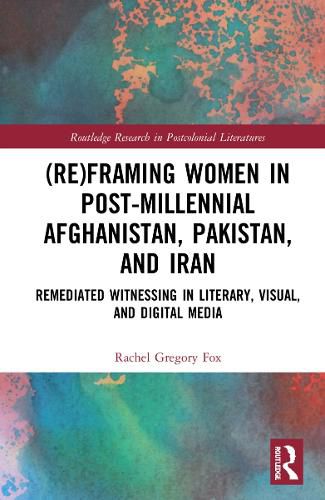Readings Newsletter
Become a Readings Member to make your shopping experience even easier.
Sign in or sign up for free!
You’re not far away from qualifying for FREE standard shipping within Australia
You’ve qualified for FREE standard shipping within Australia
The cart is loading…






This book critically examines the representational politics of women in post-millennial Afghanistan, Pakistan, and Iran across a range of literary, visual, and digital media.
Introducing the conceptual model of remediated witnessing, the book contemplates the ways in which meaning is constructed, deconstructed, and reconstructed as a consequence of its (re)production and (re)distribution. In what ways is information reframed?
The chapters in this book therefore analyse the reiterative processes via which Afghan, Pakistani, and Iranian women are represented in a range of contemporary media. By considering how Muslim women have been exploited as part of neo-imperial, state, and patriarchal discourses, the book charts possible-and unexpected-routes via which Muslim women might enact resistance. What is more, it asks the reader to consider how they, themselves, embody the role of witness to these resistant subjectivities, and how they might do so responsibly, with empathy and accountability.
$9.00 standard shipping within Australia
FREE standard shipping within Australia for orders over $100.00
Express & International shipping calculated at checkout
This book critically examines the representational politics of women in post-millennial Afghanistan, Pakistan, and Iran across a range of literary, visual, and digital media.
Introducing the conceptual model of remediated witnessing, the book contemplates the ways in which meaning is constructed, deconstructed, and reconstructed as a consequence of its (re)production and (re)distribution. In what ways is information reframed?
The chapters in this book therefore analyse the reiterative processes via which Afghan, Pakistani, and Iranian women are represented in a range of contemporary media. By considering how Muslim women have been exploited as part of neo-imperial, state, and patriarchal discourses, the book charts possible-and unexpected-routes via which Muslim women might enact resistance. What is more, it asks the reader to consider how they, themselves, embody the role of witness to these resistant subjectivities, and how they might do so responsibly, with empathy and accountability.